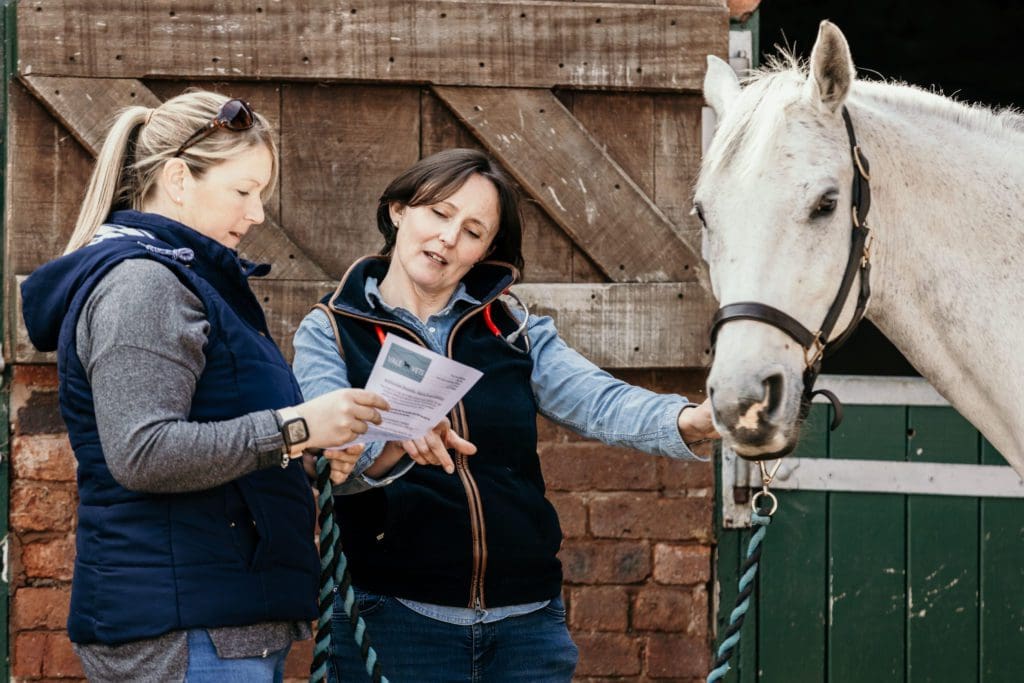A new Welsh horse health scheme aimed at reducing the need for antibiotics has held its 100th clinic – just five months after its launch.
The Equine Health Clinics are part of Arwain DGC – a project designed to help combat antibiotic-resistant bacteria in animals and the environment in Wales.
There has been an enthusiastic and positive welcome from horse owners and vets to the equine scheme, which is already halfway to its target of completing 200 health clinics by the end of June 2023.
A hundred clinics have been completed and are able to offer one-to-one free advice and screening for equine owners from their local vets. Each practice registered can claim up to £250 per clinic to help with the costs.
The clinic is designed to help prevent illness and avoid unnecessary exposure to antibiotics, so reducing the risk of antimicrobial resistance (AMR). It focuses on the health of the individual horse and the preventative measures needed to ensure they stay healthy.
The scheme offers advice on biosecurity, health planning, general health advice and a check up. The clinic will also offer bacterial culture and sensitivity testing if it is required, following a clinical assessment of a wound, illness or injury.
Fiona Jones of Vale Vets, one of the participating practices, said the equine health clinics are very beneficial. They give clients the opportunity to have a discussion with their vet about protocols on the yard, as well as about the health of their horses.
She added: “We can have a chat about antibiotics and what they’re useful for and what they’re not useful for and it’s good to make owners aware that antibiotics aren’t always necessary for wounds – good cleaning, wearing gloves, using products such as manuka honey and silver dressings can be perfectly ample for cleaning up wounds.
“Another topic is biosecurity and how to reduce the chances of them bringing disease onto the yards, so keeping them away from other horses, not sharing buckets or headcollars, and no nose-to-nose contact while they’re out and about.
“There is also the need to isolate new arrivals, taking temperatures regularly to try and pick up disease early. They’re both helpful topics to try and keep on top of disease.”
Owner Bethan Edwards found the advice really helpful. She says it applies to them more specifically in relation to mixing with other horses outside their private yard.
She added: “We’re automatically at a lower risk of infections. It’s more for us when we’re out and about at competitions or at clinics. It’s just a case of being aware and careful about contact with other horses.
“If we were to notice any signs of illnesses or runny nose, I would probably monitor the horse, check the temperature, speak to Fiona and go from there. It’s just a case of trying to stay away from antibiotics if we can and there are other ways of helping the horse without using antibiotics.”
Marial Guttridge, Equine Events Officer for Arwain DGC, welcomed the positive feedback about the Equine Health Clinics. It had proved a great start to the scheme and paved the way from a reduced demand for antimicrobials.
She added: “Owners have found the extra time spent with their vet to discuss health and biosecurity to be very valuable.
“We’re pleased to be able to offer these clinics so that local vets can better educate equine owners bacterial culture and sensitivity before prescribing antibiotics.”

